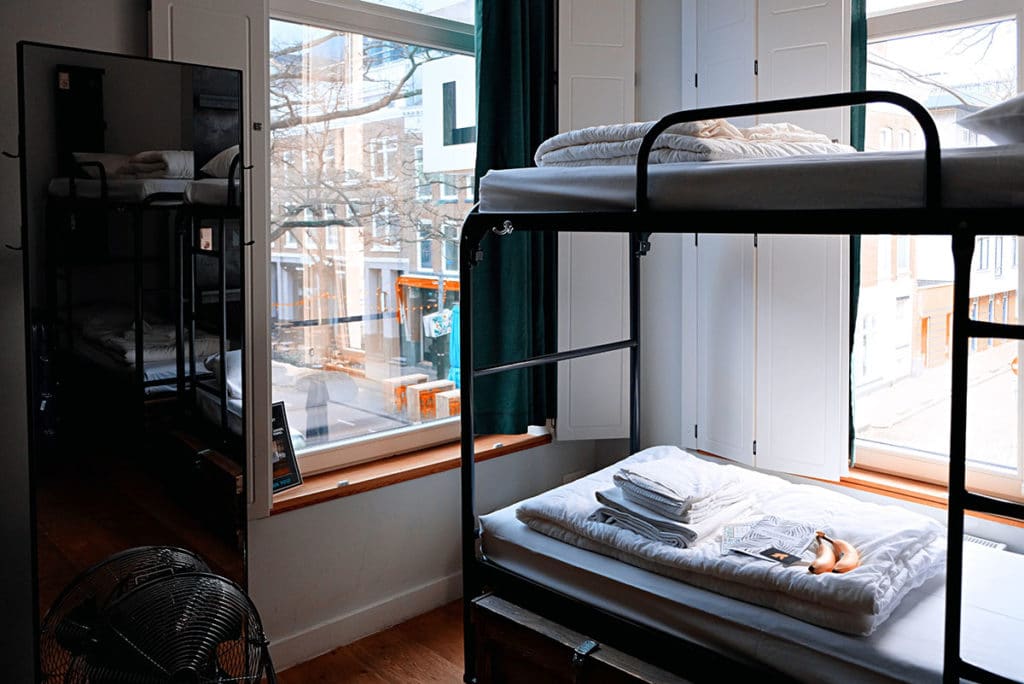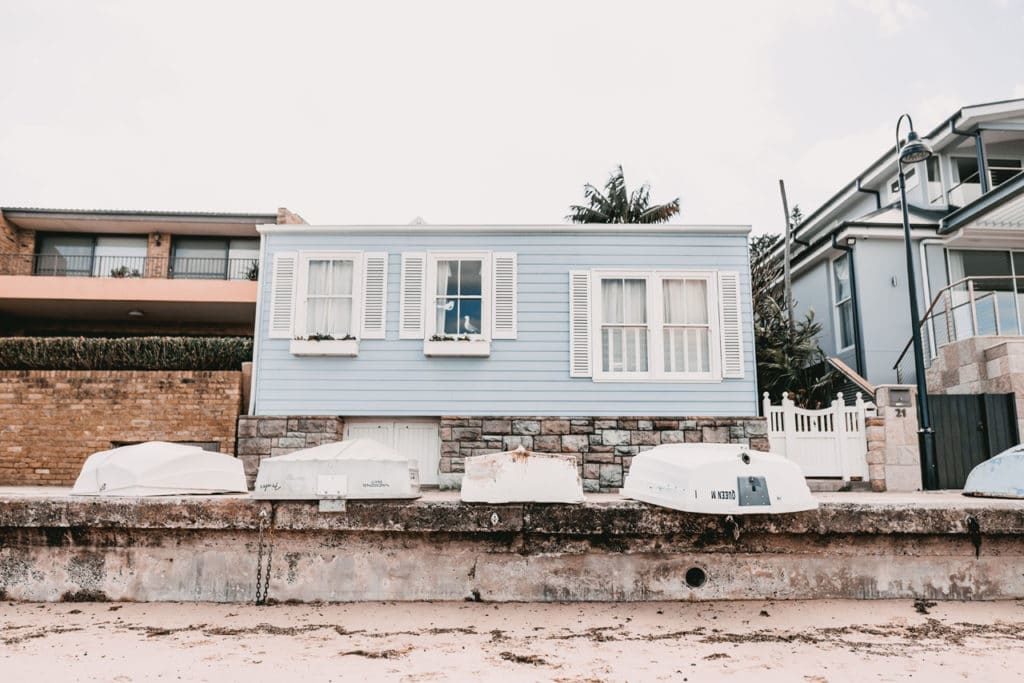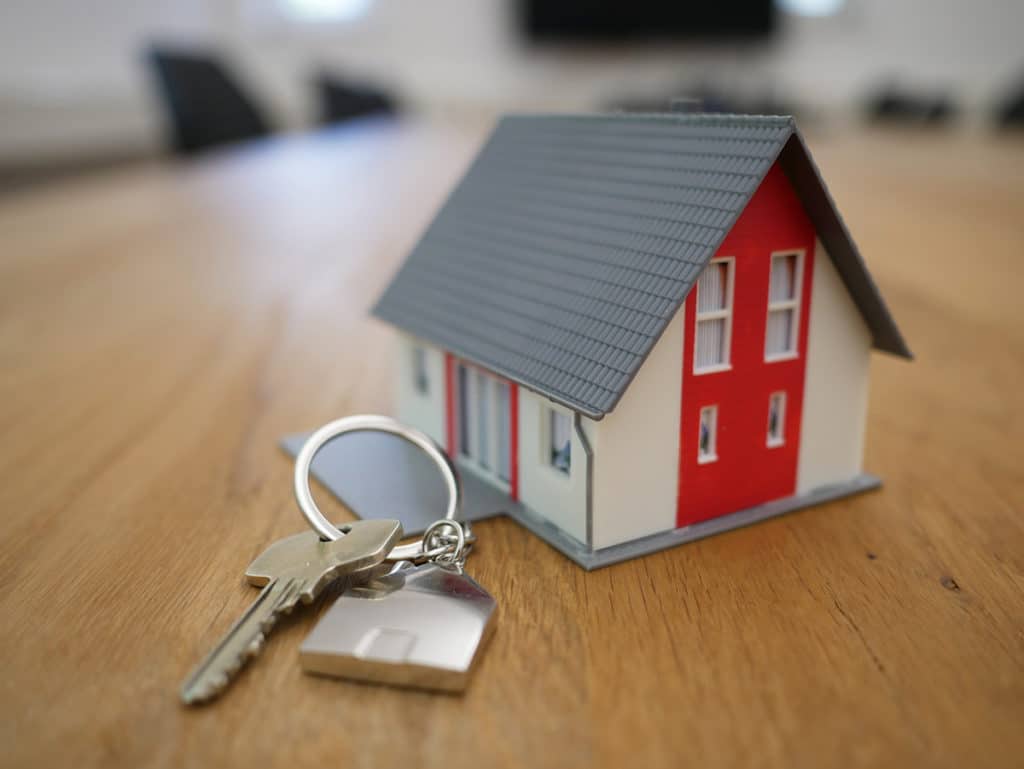Where will I live when I arrive in Australia? This is one of the first questions people ask themselves when preparing for their departure. Moving to or travelling through Australia can get quite complicated when you don’t know the country. However, Australia offers numerous options in terms of accommodation: hostels, shared flats, student housing etc. It is up to you to decide what kind of accommodation suits you best, fulfils your needs, and fits your budget. The situation might be different to what you’ve experienced back home, but don’t panic – We are here to help!
Table of Contents
How to Find Accommodation in Australia?
Online Platforms
If you are looking for a houseshare or flatmate: Flatmates & Flamate Finders.
These two sites are very intuitive; you can either browse the ads, or create your own, explaining who you are and your search criteria. You can use them to find a room in an apartment or house, or to find roommates who, like you, are looking for accommodation. If you’re in a hurry to find a place to live, you’ll get better results with the paid option.
If you are looking for a hotel, the main search sites are: Booking.com & Hotels.com
Also consider checking out AirBnBs. It can be worth it, especially if you’re traveling in a group 🙂
If you are looking for an apartment or house to rent: Realestate.com.au and Domain.com.au. These two sites are probably the best way to find accommodation in Australia if you do not want to go through a private individual. They allow you to look for accommodation by selecting the specific criteria you’re looking for (size, location, furnished or not, with terrace, etc.). You can also set up automatic alerts so you don’t miss anything!
On Gumtree you find anything your heart desires. It’s ideal for looking for a shared room or even an apartment. The best deals will be snapped up quickly, so make sure you log on regularly and refresh the ad pages so you don’t miss anything. You can also set up alerts to keep you in the loop.
If you’re a student, check your university’s website for on-campus housing options or recommended off-campus living. You can find more info on : Accommodation Guide for Students in Australia.
Facebook Groups
There are hundreds of Facebook groups that can help you with your search for accommodation in Australia. Start by filtering your results according to the city you are looking to live in. For example, there’s a group called Sydney Flatmates/house share/roomshare/accommodation or Fairy Floss Real Estate for Melbourne. You might also want to join Facebook groups for people from your home country, where you can usually find many posts from people breaking leases on their apartments and looking for new tenants to take over, or searching for flatmates. Also, don’t hesitate to join Facebook groups for students!
Also search Marketplace. Many individuals post ads and offer rooms for rent. The advantage? Often they will ask for a lower security deposit and be more flexible 🙂
Real Estate Agencies
Their listings can be found online on the specialised sites mentioned above, but also on their own websites and in their office windows. If you are already in the location where you want to rent/buy when looking for accommodation, you can go directly to a real estate agency.
At the front of some houses/apartment buildings, you may occasionally come across some signs that say “Open for inspection”. If you are interested in the place, go inside for a look, as it is open to visitors. Check carefully, however, whether it is a property for rent or for sale.
📆 At least 6 months of commitment is usually expected for a rental, so if you are on a temporary visa (WHV), this option is probably not for you. However, there are some agencies specialising in short-term rentals offering furnished properties. Prices are generally higher.
If you want to settle somewhere in the medium or long term, the main agencies to check out are: Century 21, LJ Hooker, Richardson & Wrench and Ray White. The agency fees are the responsibility of the owner so you won’t have to pay anything.
How to Score Free Accommodation in Australia?
Housesitting
Housesitting is a win-win situation: homeowners going on vacation need someone to look after their house (and often their pets), and you get free accommodation in return. Your main responsibilities might include feeding animals, watering plants, and keeping the place tidy. To find housesitting opportunities, check out Facebook groups for the cities you’re interested in. You can post an ad introducing yourself, stating your availability dates, and sharing a bit about yourself. If people are interested, they will contact you to arrange a meeting and discuss further details. Keep in mind that you’ll be living in someone else’s home, so they’ll need to trust you. You can also search directly by typing ‘housesitting or petsitting Melbourne, Sydney, Brisbane,’ etc. in the search bar.
For a more structured approach, try dedicated housesitting websites and apps such as:
🐾 PawShake & MadPaws (for pet-focused stays)
🏡 Aussie House Sitters & MindaHome (for long-term stays)
✨ Happy House Sitters (popular for short & medium-term stays)
HelpX, Workaway, and Wwoofing
HelpX, a popular option in Australia, allows you to get free accommodation in exchange for your help. The official HelpX website charges a €20 registration fee for access to all the host listings or allows hosts to contact you if they are interested in your profile.
For more isolated locations, consider Wwoofing. To access a list of hosts in Australia, you’ll need to register on their website.
WorkAway operates similarly and offers various types of jobs in different locations. The primary advantage of this system is that you get free accommodation, food, and laundry services in exchange for a few hours of work each day. It’s also an opportunity to immerse yourself in Australian life, practice your English, meet new people, and discover new talents or passions. However, it’s possible that you may not get along with your host. If this happens, address the issue directly and don’t let the situation worsen.
Au Pair
Becoming an Au Pair is one of the best ways to get free accommodation while fully immersing yourself in Australian family life. In exchange for helping with childcare for a few hours a day, you’ll receive free lodging, meals, and a weekly salary.
Many families also provide a car, which you may be able to use during your free time. Beyond the financial perks, working as an Au Pair offers a unique cultural experience—most families include you in their daily activities, whether it’s dining out, weekend trips, or fun outings.
Things to Consider Before Becoming an Au Pair:
✔️ Commitment – Most families require a minimum stay of 3 months.
✔️ Limited Freedom – Since you’re part of the household, your schedule may be less flexible.
✔️ Cultural Exchange – It’s a great way to improve your English and experience life like a local.
Employer-Provided Accommodation
This is quite common in Australia but less so in major cities. In larger cities, you may be able to get a free bed or room in a hostel if you work for them, known as ‘Work for Accommodation.’ In rural areas, it’s common for accommodation to be provided along with the job. Often, your employer will offer you either free accommodation or accommodation at a reduced rent. On farms, you’ll have the option to park your vehicle on the property and sleep there.
Couchsurfing
Another good plan is to register on the couchsurfing website. The principle is simple: you sleep on a stranger’s sofa for free! Why? Because it’s the whole principle of couchsurfing and mutual aid! It’s good way to meet locals and get to know the best deals in the city while saving money on accommodation.
Sleeping in Your Vehicle
Finally, another option to save on accommodation is to sleep in your van or 4WD. Naturally, this is more cost-effective but may be less comfortable. In major cities, you’ll need to venture away from the city center to sleep peacefully. In any case, we recommend downloading the Wikicamps or Campermates apps to find all the campspots where you can sleep for free (and legally!)
Youth Hostels or Backpackers Hostels
If you travel to Australia as a backpacker, and you plan to travel frequently, one of the most economical options for a short stay is a hostel. This type of accommodation is a good solution if you do not want to commit to one place for too long. You can choose to stay for a few days or to live there for several weeks!
Most hostels offer two styles of accommodation – dorm rooms or private rooms, with both options having communal areas to relax and cook. Dorm rooms are usually the cheaper of the two and are ideal for solo travellers looking to meet new people.
✅ The Pros
- Affordable Prices. Expect to pay at least $40/night for a dorm bed, $80 for a room shared by 2 or 4 people, and $150 for a private room. Of course, prices vary from city to city and according to the standard of the hostel.
- Plenty of Options. Australia has a huge number of backpacker hostels, so even in small towns you’ll always find a hostel ready to welcome you.
- Great Social Scene. You’ll meet lots of people from all walks of life, and maybe even some future travel partners!
- Job Opportunities. It’s also a great opportunity to make contacts to find work through other travelers.
❌ The Cons
- Limited Privacy (shared rooms, shared bathrooms, etc.)
- Cleanliness Can Vary. Some hostels maintain high standards, while others can be less than spotless.
- Noisy Environments. Quality of sleep can be impacted (noise, party-goers, light, alarm clocks going off, etc.).
There are three main hostel chains that are well known in Australia – Nomads, Base Backpackers and YHA Backpackers.
Compare hostels
To find the hostel that best suits your needs, use Booking.com. The reviews are always honest and it’s very thorough!

Hotels, Motels, Bed & Breakfast
Hotels & Motels
In Australia hotels are rather expensive and the standards are often not as high in Europe. This might be an easy option for your arrival or if you only visit Australia as a tourist, moving from city to city. In the big cities, expect to pay at least $140 per night in a hotel located in the city center.
If you are looking for accommodation offering the same kind of services, but on a lower budget, consider a motel (or motor inn). Motels are quite common in Australia, you will find them on the sides of the roads, often at the entrance or exit of cities, even small ones. Prices vary depending on the location and services, but count around $110 per night.
If you plan to go on a road trip, remember to book your accommodation in advance. Distances are sometimes long between cities, and there are few hotels in somewhat isolated regions.
✅ The Pros
The buildings are often recent and offer many services: necessary to prepare tea and coffee, refrigerator, TV, air conditioning, private bathroom.
❌ The Cons
This is the most expensive temporary housing option.
Airbnbs
Like everywhere else, Airbnb is an excellent option for temporary accommodation in Australia. You can choose to live with the owner of the apartment/house, rent a private room or even have the entire place to yourself. You will see that there is a huge variety of prices, depending on several factors. Airbnb is a very good alternative to hotels and motels for short-term accommodation.
✅ The Pros
- You can benefit from an entire accommodation at the same price as a hotel.
- It is also an opportunity to talk with your hosts and learn about local life, a good option especially when you just arrived in a new city.
❌ The Cons
- You need to know your dates in advance and you will not be able to extend your stay as you wish (with some exceptions) as you would in a hostel for example.
- You will need to clean the accommodation before leaving.

Camping and Caravan Parks
Camping is one of the best ways to explore and experience a place. And this is especially true in a country like Australia! Plus, camping is the cheapest accommodation option, especially if your goal is to travel the country on the road. Camping and caravan parks or holiday parks are almost always equipped with hot showers, proper toilets, a kitchen/barbecue area and very often a swimming pool.
If you have a van to sleep in or a caravan, you will only have to pay for the space to park and to connect to the power supply. If you are driving a car, you can stay in a tent or rent bungalows on site.
✅ The Pros
- Rates: count on around $40 a night for two people with electricity for a simple pitch. A small cabin with kitchenette costs around $80, while larger bungalow-type accommodation costs at least $150.
- Australia has a large number of campgrounds, especially on the coast.
- It’s a great way to meet the locals.
❌ The Cons
- In summer and during school holidays, campsites are usually full well in advance.
- Prices are higher during the high season.
- Camping is not recommended all year round. It is best to camp in the north in winter (i.e. the dry season) and in the south in summer.
Good to know 💡
It is not always easy to find a place to spend the night in a van or motorhome, and in some areas campsites can be quite expensive. We recommend that you check the Camps Australia Wide guide, which lists all the free campsites and rest areas, or the Wikicamp app!
Flat shares
Flat shares are an easy and cheap way of living in Australia. The prices vary, an average would be something between $350 and $500 per week*.
*The rent is calculated per week, and it is generally to be paid weekly or every 2 weeks.
The other aspect of living in a flat share is that you have to know how to live in a community and to obey the rules of the share house. There are housemates who never do their dishes or replace the toilet paper! In the CBD of bigger cities, it’s not uncommon to see ads for shared rooms. You will have less privacy, but live in the city center for a reasonable price.
👩❤️👨 Housesharing as a couple
In shared accommodation, if you are a couple, the price per week for a shared room will not simply double. You will generally have to pay a bit more than a single person per week, eg $400 per week instead of $350.
✅ The Pros
- Being able to live in the city centre at an affordable price.
- Meet new people and build a network.
- Live in a bigger accommodation.
❌ The Cons
- Bond to be paid in advance (usually 2 weeks’ rent).
- Lack of privacy.
- The risk of not getting along with your roommate(s). If it really doesn’t work out, you can always leave the apartment (usually 2 weeks’ notice).

Student housing
There is a special option for students, such as Urbanest or Unilodge. These are establishments that offer fully equipped rooms for students.
✅ The Pros
The rooms are comfortable (air conditioning, TV, private bathroom, swimming pool, games rooms, gym, etc.).
❌ The Cons
These are often very expensive options. Expect to pay a minimum of $450/week.
Renting an Apartment or House
In Australia’s big cities (especially Sydney and Brisbane), real estate prices are incredibly high. In Sydney, you have to expect at least $500 per week for a studio apartment in the CBD. This is too expensive for most backpackers, but it’s the only option if you want to have a place to yourself. Nevertheless, it might be suitable for young emigrants or couples.
Note that you can choose to rent furnished or unfurnished accommodation. This is an important point depending on your situation and your budget. But buying furniture does not necessarily spending a huge amount of money. You can find cheap furniture on websites like Gumtree or the Facebook Marketplace. Sometimes you can even find free furniture on the streets!
If you are with a couple of friends or family, you can rent a whole house together. In the suburbs of a city, rents are cheaper. You just need good public transport connections close by, otherwise you will need to buy a vehicle.
✅ The Pros
- It is the best solution to have your own place to yourself.
- Independance.
❌ The Cons
- Bond to be paid in advance (usually 2 weeks’ rent).
- Lack of privacy.
- The risk of not getting along with your roommate(s). If it really doesn’t work out, you can always leave the apartment (usually 2 weeks’ notice).
If you have a problem with your landlord or have questions about your rights and obligations, visit the FairTrading website.

Applying for a Rental Property: Step by Step
Understand the Rental Process
- Inspections: Attend property inspections to view potential rentals. This is often a requirement before applying.
- Applications: Prepare to submit rental applications quickly, as the market can be competitive. Include references, proof of income, and identification.
- Lease Agreement: Review your lease agreement carefully before signing. Understand your rights and responsibilities as a tenant.
Application
If you want to rent an apartment or a house, you will first need to fill out a rental application. This is usually provided by the owner or the real estate agency when visiting the apartment. Filling out the form quickly and thoroughly will maximise your chances of getting the accommodation.
You will therefore have to fill out an application form with your contact details and your situation and provide some documents:
- ID
- Estimate of your income (tax return from the previous year or pay slips)
- Your Visa
- Proof of address (electricity bill, bank account)
- References (professional, personal, former landlords).
Rent and Bond
Rent is paid by the week in Australia. Check if bills are included in the advertised rental price and what exactly is included. Before signing the lease, you can ask for clarification on anything that is not clear.
In Australia, there is no need for guarantors, nor to have an income x times proportional to the amount of the rent to be entitled to rent accommodation. However you will be asked to pay a rental bond which will be the equivalent of 2 to 4 weeks’ rent. Sometimes you will also have to pay the first two weeks of rent up front. So plan in advance to have a budget for this.

Lease
Signing a lease is the first step before being granted access to your home. You can sign your lease with your real estate agency, or directly with the landlord. Generally, the lease has a duration between 6 months and a year and can often be renewed. Depending on your situation, do not be afraid to ask for the rental duration that suits you best.
At the end of your lease, check the conditions and notice periods if you wish to terminate or renew it. Very often, if your accommodation is managed by a property management, a reminder will be sent to you before the end of your lease.
If you want to leave your accommodation before the end of your lease, you will be breaking the lease. In this case, to limit the damage, you need to find a replacement. You will often find people looking to take over their lease in Facebook accommodation groups.
Condition Report
When entering your accommodation, the owner or the real estate agent will give you an entry condition report. Check the document carefully and complete it if you notice any faults or malfunctions (electrical outlets, switches, door closures, air conditioning, etc.). If your accommodation is furnished, check the inventory of what is there and the operation of all household appliances, even if you do not use them.
When you leave the accommodation, this document will serve as a basis to assess whether anything is missing and whether you have returned the apartment in good condition. Normal wear and tear of the accommodation and furniture is expected and should not be considered as damage. If everything is in order, you will then receive a refund of your bond within a few days, in whole or in part if damage has been found.

Beware of Scams!
Australia is generally a safe country with honest people, but there are plenty of scams out there too.
Here are the main risks and scams when sharing accommodation:
- The “landlord” is in fact also a tenant (subletting without the owner’s authorisation is prohibited)
- The number of tenants exceeds the maximum number allowed
- Sometimes balconies are converted into bedrooms
- You are required to stay for a fixed period or risk losing your deposit
- You are asked for an excessive rent deposit in addition to your deposit (generally the rule is: 2 weeks’ rent + a deposit of the same amount)
- Once the advances have been paid, the landlord disappears or refuses to give you the keys
Housing scam – Personal account
During her Working Holiday Visa in Australia, Kim fell victim to a housing scam. She contacted us to allow future backpackers to avoid this kind of scam. Here is her testimony:
“We arrived in Sydney and were looking for an apartment for a 3 month period. Of course, we did our research on Gumtree (because agencies often impose a minimum of 6 months). After a week of visiting apartments, we finally found a gem.
The owner then asked us to pay 3 months’ rent in advance and a month’s bond (deposit). That was a total of 7,000 AUD. We then signed a tenancy agreement, so we did everything right. Our bank transfers taking a little time, the owner called us constantly to ask us to quickly pay the whole amount. In hindsight, we should have found that suspicious…
As we were afraid of missing out on the apartment, we complied. But when we asked to pick up the keys to the apartment, we were told no, we had to wait 3 more days. We told her that we were canceling everything. Here comes the tragedy…
She told us that she could not reimburse us. It turned out that the apartment was not hers. She was only a tenant, and had done this scam with about twenty people in different apartments (but we learned that much later of course!).
We filed a complaint with police, and the investigation led to her arrest. But what is most embarrassing is that she no longer has the money, and she will not be able to reimburse anyone. All our savings were gone, and we had to borrow from several friends to stay in Australia. We really thought we would get something from the trial but we got nothing. Today we are in a critical situation, that’s why we think that ‘It’s important to warn newcomers of these types of scams!”
Tips for renting from a private individual
- Only pay on the day of entry into the premises, or on delivery of the keys.
- Make sure you get a photocopy of the ID of the owner in case of dispute.
- Pay no more than 2 weeks’ rent in advance, and 2 weeks’ bond.
- Always ask for a receipt.
Best cities to Arrive in Australia
Sydney
Sydney appears to be the most “logical” city of arrival. The capital of the state of New South Wales, Sydney is dynamic and enjoys an ideal climate. It has many beaches nearby, including the famous Bondi Beach. The city is also full of cool bars and restaurants and offers unique events and festivals.
In terms of housing, it is unfortunately the most expensive city in Australia. But it is still possible to find some affordable places. A single room in an apartment shared with three others is about $350 per week.
Read more: Sydney Accommodation Guide
Melbourne
Melbourne is the second largest city in Australia. The capital of the state of Victoria, Melbourne is a cosmopolitan city with more than 5 million inhabitants.
Housing is quite expensive here too. But you have the possibility of finding affordable options. A single room in a shared apartment with three others is around $300 a week. The cost of living a little lower than in Sydney.
Read more: The 10 Best Hostels in Melbourne
Brisbane
Brisbane is the state capital of Queensland. It is very sunny (there is sunshine 300 days a year!) and smaller than Sydney and Melbourne. Housing prices, however, have risen sharply following the Covid pandemic. Budget around $300 per week to share with three others. Look outside the city centre for cheaper accommodation.
Read more: Accommodation in Brisbane
Perth
Perth is the capital of Western Australia. Accommodation in Perth, offers a wide range of options catering to different preferences and budgets. From luxurious hotels with stunning views of the Swan River or the city skyline to budget-friendly hostels in the vibrant neighborhoods of Northbridge and Fremantle, there’s something for every traveler. The prices vary significantly depending on the location, type of accommodation, and time of year. For long-term stays, rental properties and shared accommodations are popular choices, with prices reflecting the property’s size, condition, and proximity to the city center or coastal areas. Count around $250 for a shared accommodation.
Updated 18/02/2025























